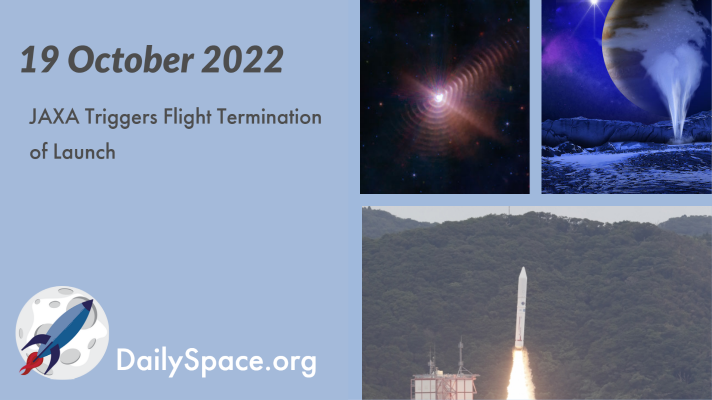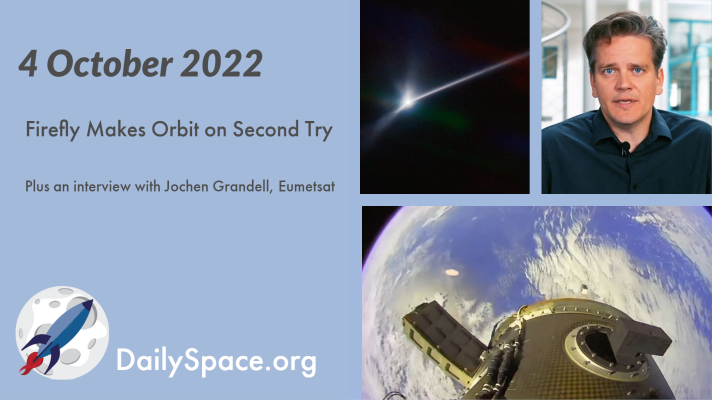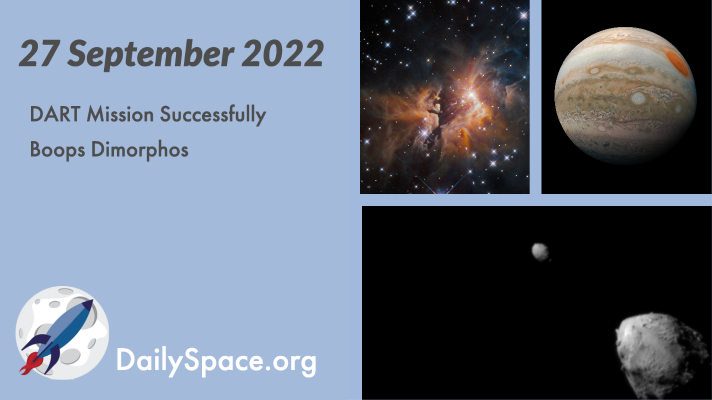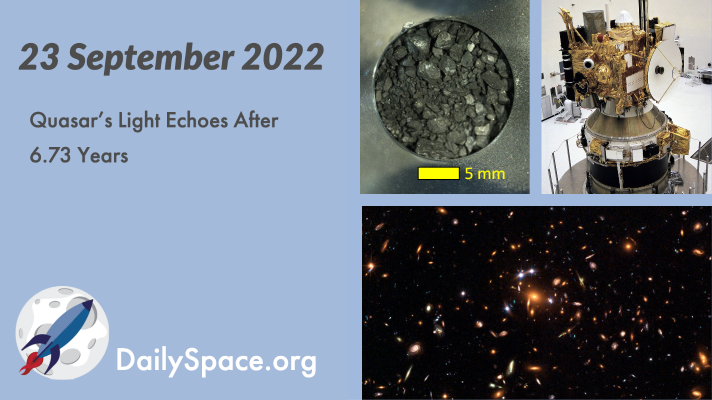
Oct 20, 2022 | Asteroids, Daily Space, DART, Europa, JAXA, Lucy, Mars, Rockets, Space China, SpaceX, Stars, Supernovae
Space is hard, and some days, getting rockets to work doesn’t go as well as expected. An Epsilon rocket launched by JAXA and carrying eight payloads including RAISE 3 was lost when mission control triggered the flight termination system due to an attitude issue. Plus, stars blowing dust rings, stars exploding, asteroids getting hit with spacecraft, and Europa’s geysers may not come from the subsurface ocean.

Oct 5, 2022 | Asteroids, Conferences, Daily Space, DART, Earth, Europa, Galaxies, Guest Interview, ISRO, Jupiter, Rockets, Spacecraft
Early Saturday morning, another company entered the exclusive club of successful orbital launchers, Firefly Aerospace, when their second attempt to reach orbit, named To The Black, lifted off on October 1. Plus, a crater in Spain, a new DART image, Juno flies by Europa, and an interview with Jochen Grandell regarding the Meteosat program.

Oct 1, 2022 | Asteroids, Daily Space, DART, Exoplanets, Galaxies, Globular Cluster, Guest Interview, JWST, Space History, Spacecraft
The quest to understand the formation mechanisms of globular clusters was limited by the Hubble Space Telescope’s ability to peer back in time. Now, JWST’s larger mirror has allowed astronomers to find gravitationally lensed galaxies that have globular clusters almost nine billion years old. Plus, two new super-mercury exoplanets, This Week in Space History, and an interview with Eric Palmer about the DART mission.

Sep 29, 2022 | Artemis, Asteroids, Cosmology, Daily Space, DART, ESA, Galaxies, Jupiter, Mercury, Moon, Rockets, Science, Spacecraft, SpaceX, Starlink, Stars
After ten months of space travel, NASA’s DART spacecraft arrived at the asteroid Didymos, targeted the moonlet Dimorphos, and successfully flung itself at the surface. Multiple observations confirm that the system brightened and even managed to resolve a cloud of debris. Plus, rocket launches, an update on the SLS, some broken physics, and International Observe the Moon Night.

Sep 24, 2022 | Asteroids, Daily Space, DART, Europa, Fast Radio Bursts, JAXA, Jupiter, Mars, Quasar, Random Space Fact, Space History
Astronomers using the 1.2-meter Whipple Observatory to follow the brightness of a lensed galaxy for 14.5 years have calculated that the time delay between light arriving along the shortest and farthest paths is 6.73 years. Plus, DART, Hayabusa2, Juno, fast radio bursts, and This Week in Space History, we look back at NASA’s 1990s attempts to reach Mars.







 We record most shows live, on Twitch. Follow us today to get alerts when we go live.
We record most shows live, on Twitch. Follow us today to get alerts when we go live.